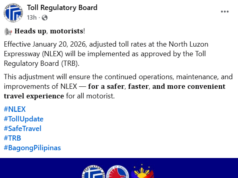“AND IN AS MUCH as most good things are produced by labor, it follows that all such things of right belong to those whose labor has produced them.
But it has so happened in all the ages of the world, that some have labored, and others have, without labor, enjoyed a large proportion of the fruits. This is wrong and should not continue.
To secure to each laborer the whole product of his labor, or as nearly as possible, is a most worthy object of any good government.”
Itaas ang sahod. Ibaba ang presyo!
“Labor is prior to, and independent of, capital. Capital is only the fruit of labor, and could never have existed if labor had not first existed. Labor is the superior of capital, and deserves much the higher consideration.
Capital has its rights, which are as worthy of protection as any other rights…A few men own capital, and that few avoid labor themselves.”
Tamad na burgis na ayaw gumawa, sa pawis ng masa ay nagpapasasa.
‘These capitalists generally act harmoniously, and in concert, to fleece the people.”
Ibagsak ang burukrata kapitalismo, ang lintang sumisipsip sa dugo ng manggagawang Pilipino.
NO. The English passages quoted above were not lifted from the pages of Das Kapital or the Communist Manifesto. Nor did they come from the fiery writings of Engels or the incendiary speeches of Lenin.
Would you believe, those were the very words of Abraham Lincoln, the 16th President of the United States of America, the very bulwark of capitalism in the world?
Born poor, self-taught and an itinerant worker before he turned politician, Lincoln was so inured in the nobility of labor that it became one great pillar of his presidency.
“No men living are more worthy to be trusted than those who toil up from poverty, none less inclined to take or touch aught which they have not honestly earned. Let them beware of surrendering a political power which they already possess.”
Ang masang manggagawa – OFW man o di nangibang bayan – ang tunay na bayani.
Lincoln’s biographer, the poet Carl Sandburg, called that passage from the President’s annual message to Congress on December 3, 1861 as:
“An extraordinary little treatise on what Lincoln considered the basic point of the American economic and political system…A rough-hewn sketch of American society, placing the farmer and the laborer as the living and controlling elements in a government of the people.”
The emancipation of the slaves that precipitated the American Civil War and caused the holocaust, and eventual apotheosis of Lincoln, was more than an issue of race. It was also a labor issue: slave labor.
By breaking the chains of slavery, the Great Emancipator, freed the Blacks from indentured labor, and elevated them to their full humanity.
Laboro, ergo sum. I labor, therefore I am. A variation on a theme of the philosopher Rene Descartes. A pick on the Christian ethos that labor ennobles the man.
So what makes the only Christian nation in Asia then, with less than 10 percent of its population having all – without labor, and more than 90 percent having none – but with all the labors?
A noble country?
Isulong ang pakikibaka tungo sa kalayaan at karangalan ng manggagawang Pilipino! Mabuhay ang uring anak pawis!




